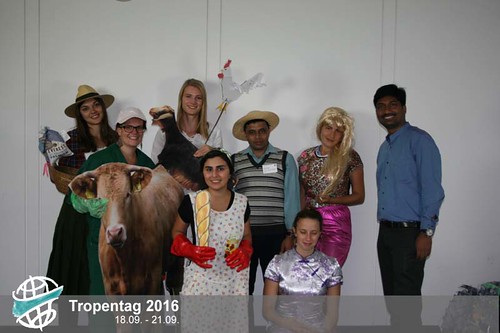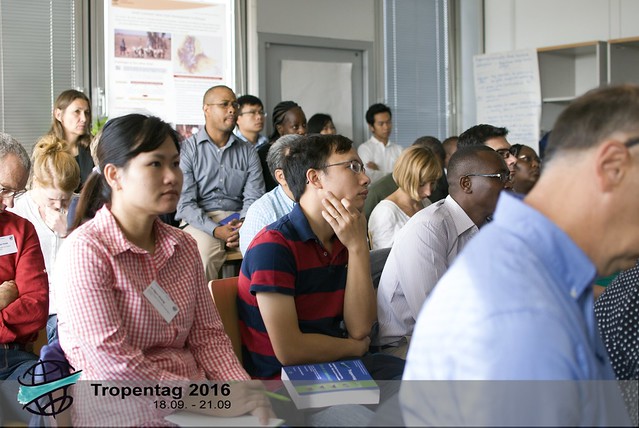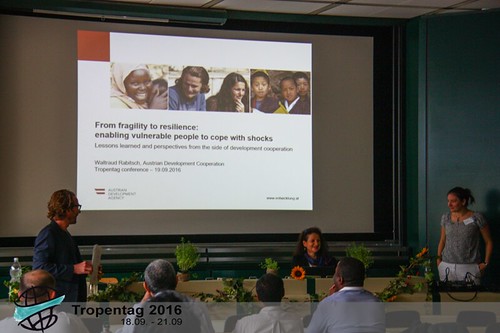Plus 2016
Reflective Photobooth– A creative method to challenge detachments in today’s food system
Mon, 09/19/2016 - 14:34 — Lang
Background: There is a rising detachment in agrifood systems as, especially in industrialized countries, the direct experience and contact with farmers is little and the gap between consumers and producers is high. Because of little knowledge about agriculture, there is an increased importance of second-hand sources like mass media communication about farming. Unfortunately, the stereotypic representation on the media with inherited values and pictures of family farming often distances groups further.
The goal: Challenging media perspective of farmers with several practical methods on public conferences and seminars. An innovative new approach to discovering power relations and problems derived from different cultural and social backgrounds.
Conduction: Setting up a studio -> selecting costumes –> taking pictures -> talk and reflect about it.
"Are you lecturing them?" - Self-critical reflexion on 5 year CGIAR experiment about livestock value chains
Mon, 09/19/2016 - 14:02 — BackhausIt’s nine o’clock on the first day of the Tropentag 2016, the room quickly filled up with people eager to hear what’s new about the sustainable integration of livestock smallholders in value chains through multi-stakeholder platforms. Following the motto „More meat, milk and fish for and by the poor “, during this interactive workshop CGIAR presented the results of their five-year research in developing countries, encouraging to ask critical and challenging questions in order to improve their model.

Background of the experiment is the increasing demand of livestock in developing countries, where smallholders currently provide about 70% of livestock produce. While the production of livestock thus offers great business opportunities, smallholders are often not part of this transition. CGIAR, in this “very expensive experiment”, tried to develop models, strategies and technologies to empower smallholders and women, ensure food security and improve health and environmental issues, amongst others.
Predicting the unpredictable?
Mon, 09/19/2016 - 13:35 — BergerIn the workshop „From fragility to resilience - enabling vulnerable people to cope with shocks”, the question of how to deal with the unpredictability of crises, natural catastrophes and shocks led to an inspiring debate. Resilience, in the sense of ability to cope with shocks, is “a concept of an equilibrium” - as Michael Hauser from the Centre for Development Research at BOKU has put it. In contrast to resistance, it is a system´s dynamic response to change.

Leading up to multiple discussion groups organized in a world café method, three guests introduced the topic of resilience from different point of views. It has been most interesting to note how the debate was concentrating on the question of how to make changes, a crisis or even a shock more predictable. Possibly, predicting change is one option of increasing a system´s resilience. However, it may also be a way of resisting it. Furthermore, the question of differentiating between sustainability and resilience arose. In many ways, the latter is part of sustainability.




